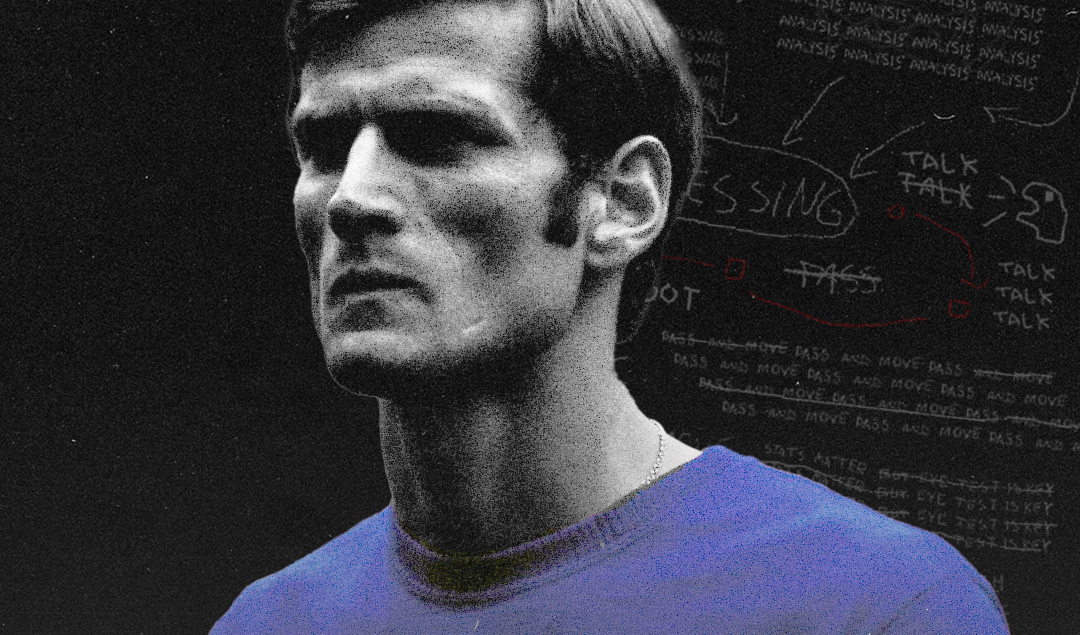Giacinto Facchetti: The Best Left Back You’ve Never Heard Of
Who is the best left back of all time? Premier League fans will no doubt mention Ashley Cole and Denis Irwin, La Liga fans and casuals will no doubt remember Roberto Carlos and his magical free kick, whilst people with a deeper football knowledge would mention Paul Breitner or Karl Heinz Schnellinger. However, in my opinion, and in the opinion of a select few, the man worthy of this achievement is a rather unknown player.
Despite pioneering the attacking full back role that has been made famous today by the likes of Marcelo and Andy Robertson fifty years ago, Giacinto Facchetti’s name more often than not is unknown to the wider footballing world. Born near Bergamo in 1942 in a working-class family he took up football at a very early age and due to his size and pace, he was a natural fit for the striker position in the youth teams he played for.
His athleticism nearly caused him to pursue a wholly different career as he dreamt of becoming an Olympic champion in the 100m sprint. Whilst playing for Trevigliese, his hometown club, as a striker and standing at 188cm or 6ft2 in Anglican he caught the eye of Helenio Herrera in 1960. Herrera had just joined Inter, the team he would eventually turn into La Grande Inter, and Facchetti was to become one of its lynchpins, just not in the position he probably thought.
When Fourth-tier Calais Came Within Inches of Winning the Coupe De France
You can imagine his surprise sitting in Herrera’s office as the man nicknamed the Magician was telling him he was going to play left back. The transition from striker to full back is not a well-trodden path but Facchetti made his debut against Roma in his new position and immediately shone. A maiden goal against Napoli came that season and soon enough the position was his to do with as he pleased.
Facchetti embodied Herrera’s Catenaccio like no other player. Wrongly remembered as a dull and defensive system the Catenaccio is probably the peak of counterattacking football. Within this system, the defensive line was no longer required to be just a reactionary unit, responding to the opposition’s movements, but would initiate the attacking phase, something that today is commonplace.
During the 60s, however, such a thing was unheard of in Europe, and a left back that became the forward of the back line was probably seen as blasphemy. Thus, Facchetti was perfect for this new role, possessing every defensive quality you could desire in a fullback, closely marking his opponents and expertly dispossessing them, marshaling the left side of Inter’s defense. With such an impressive defensive ability, it seems almost unfair that such a tall and physically strong player could be compared to the best of Europe’s wingers.
The opposition defenses soon had enough of him beating them at pace or dribbling through their lines on his overlapping runs and started blocking his runs. Whilst doing so they opened the door for him to dish out pinpoint crosses to the likes of Sandro Mazzola or cut inside himself and take a shot on goal. When talking about players who played a long time ago casual fans dismiss them speculating that they wouldn’t have been as good today.
Facchetti stands as a high-water mark for the timeless talent that would have shone through both in 1923 and 2023. In his 634 games for Inter, Facchetti scored 75 goals and during the 1965-66 season he set a record for the most goals by a defender with 10, a record that stood for 35 years. Having never moved away from his beloved Inter, he won four Serie A titles and two consecutive European Cups in 1964 and 1965.
The latter won was won against Eusebio’s Benfica and many people expected Facchetti to also win the Ballon d’Or, becoming the first-ever defender to do so. Sadly, just like in the modern era, the attacking player received more votes, despite Facchetti winning the European Cup ahead of Eusebio. On the international stage, Facchetti took part in the humiliating loss to North Korea at the 1966 World Cup, but soon helped reverse Italy’s fortunes by winning the 1968 European Championships.
Two years later at the 1970 World Cup, he would stand on the losing side in the final against Brazil, having been instrumental in the Squadra Azzura’s win over West Germany in the semifinals. After that game, Franz Beckenbauer said that Facchetti taught him how to go forward from defense. Facchetti on the other hand, focused on the fickleness of football fans, stating that after the loss to Korea, the fans wanted to sentence him to forced labour and four years later police had to keep the fans celebrating outside his home in check.
His humble views and personality would have been a breath of fresh air in the modern footballing landscape. In the latter stages of his career, he acted as a sweeper, having lost some of his pace and retired as Italy’s top appearance holder. In his career that spanned over 700 competitive matches, he only received one red card, for an ironic applause to a refereeing decision.
After retirement he immediately joined his beloved Inter’s backroom staff, filling a number of positions and serving as Inter chairman from January 2004 until September 2006, when he died at the age of 64. When asked who his successor might be in Italy’s defense, Facchetti stated that it could only be Paolo Maldini, whose only fault was that he played for Milan.
By: Eduard Holdis / @He_Ftbl
Featured Image: @GabFoligno / Mondadori Portfolio
